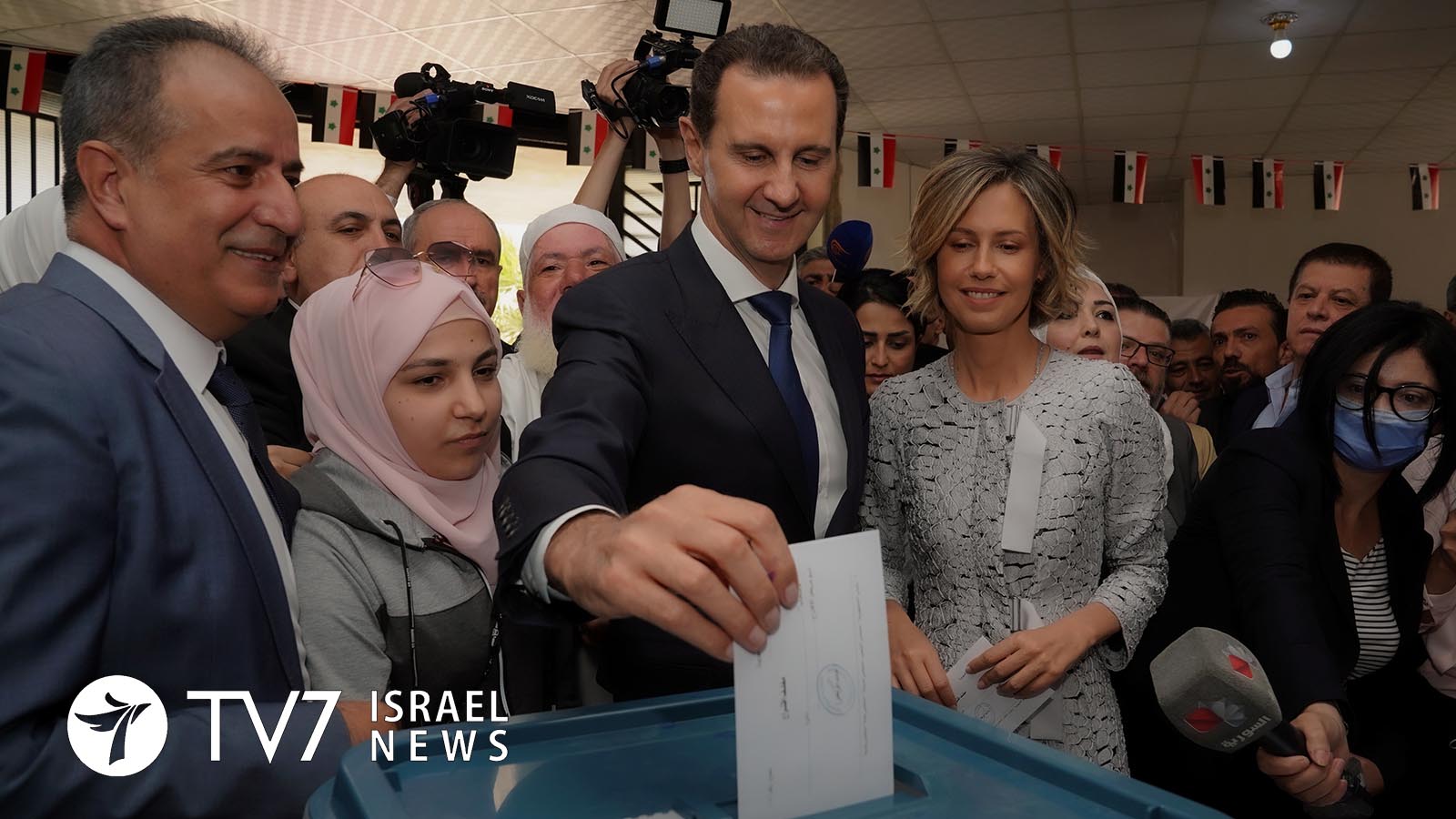In all but a procedural process, Bashar al-Assad has secured a fourth term as Syrian President.
Polling stations opened nationwide yesterday for an election that the opposition and Western nations view as merely rubber-stamping Assad’s grip on power.
Only two obscure candidates ran for office against the long-term leader, who for all intents and purposes, inherited power in 2000 on the death of his father Hafez, who had ruled Syria for 3 decades.
Former Deputy Cabinet Minister Abdallah Saloum Abdallah and Mahmoud Ahmed Marei, the head of a small, officially sanctioned opposition party, ran against the 55-year-old ruler.
Assad, who is an ophthalmologist, initially had no political aspirations. He only became his father’s heir apparent after the death of his older brother Bassel in a 1994 car accident.
Hundreds of students lined up to vote ahead of the opening of the polling stations at Damascus University’s Faculty of Arts, where several were heard chanting “With our blood and soul we sacrifice our lives for you, Bashar!”
“We came to elect President Bashar al-Assad…without him Syria would not be Syria, “a nursing student identified as Amal told Reuters.
Syrian officials told the agency privately that in the final few days prior to balloting, authorities organized large rallies across the Arab Republic in an effort to ensure a big turnout on election day.
The state SANA news agency reported that polls were kept open for an additional five hours until midnight last night per higher judicial order due to the high number of voters.
The country’s powerful security apparatus that underpins Assad’s Alawite Shia Islam minority-dominated rule has also instructed senior officials to vote, they added.
“We have been told we have to go to the polls or bear responsibility for not voting,” said Jafaar, a government employee in Latakia, who declined to provide his family name for fear of reprisals.
The regime maintains that the election demonstrated how Syria is able to ‘function normally’ despite a decade-old war, which erupted after peaceful protests against Assad’s authoritarian rule in 2011.
The conflict has killed hundreds of thousands of people and driven 11 million from their homes, representing about 50% of the country’s population.
Local figures in sections of the southern city of Deraa, where the first anti-Assad protests broke out, dared to call for a general strike to protest the election. Graffiti appeared on walls across other towns in the south, reading: “All people reject the rule of the son of Hafez.”
Assad has faced war crimes allegations since 2015, with then US Ambassador-at-Large for War Crimes Issues Stephen Rapp claiming that the atrocities committed by the Syrian President were the worst seen since those of Nazi Germany.
The foreign ministers of France, Germany, Italy, Britain and the United States issued a statement on Tuesday, criticizing Assad and proclaiming the Syrian elections as neither free nor fair.
The joint statement was signed by United States Secretary of State Antony J. Blinken, French Foreign Minister Jean-Yves Le Drian, German Foreign Minister Heiko Maas, Italian Foreign Minister Luigi Di Maio, and UK Foreign Secretary Dominic Raab.
To see the full text:
We, the Foreign Ministers of France, Germany, Italy, the United Kingdom and the United States of America wish to make clear that Syria’s May 26 presidential election will neither be free nor fair. We denounce the Assad regime’s decision to hold an election outside of the framework described in UN Security Council Resolution 2254 and we support the voices of all Syrians, including civil society organisations and the Syrian opposition, who have condemned the electoral process as illegitimate.
As outlined in the Resolution, free and fair elections should be convened under UN supervision to the highest international standards of transparency and accountability. For an election to be credible, all Syrians should be allowed to participate, including internally displaced Syrians, refugees, and members of the diaspora, in a safe and neutral environment.
Without these elements, this fraudulent election does not represent any progress towards a political settlement. We urge the international community to unequivocally reject this attempt by the Assad regime to regain legitimacy without ending its grave human rights violations and meaningfully participating in the UN-facilitated political process to end the conflict.
We reiterate our firm support for the UN Special Envoy for Syria’s efforts to promote a political settlement, based on all aspects of UNSCR 2254, which protects the future prosperity and the rights of all Syrians, including the right to vote in free and fair elections.
